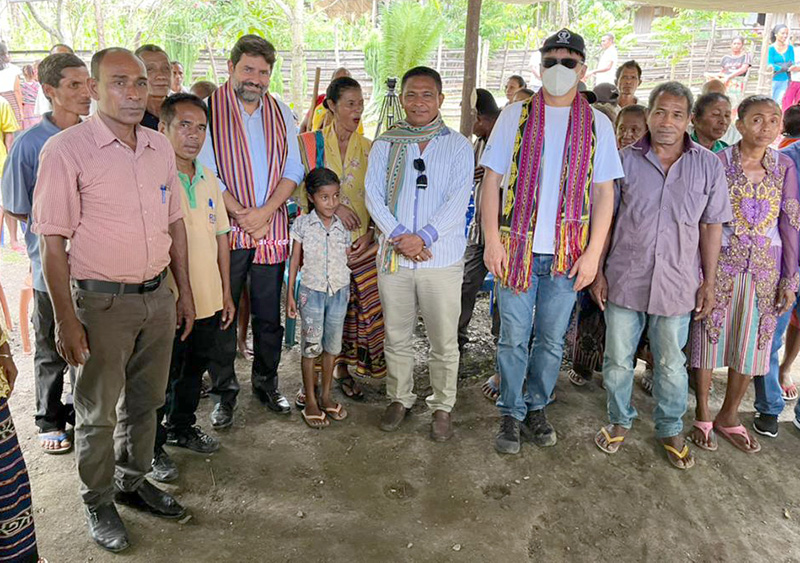
The Brazilian government has responded to a call from the government of East Timor for humanitarian assistance to mitigate the damages caused by Tropical Cyclone Seroja in 2021, aggravated by the crisis resulting from the expansion of COVID-19 in the country. In the months following the natural disaster, food insecurity in East Timor was expanded, especially for children under five years of age and women. Cyclone Seroja destroyed 5,248 hectares of irrigated land, directly affecting 3,545 citizens. There was a 25 percent decrease in rice production in the country.
Brazil donated USD 100,000 and the money is being used in the reactivation of subsistence activities, through the project “Providing financial support for subsistence activities through horticultural production and goat farming for the government of East Timor’s response to the floods of Cyclone Seroja”, in the municipality of Bobonaro, in the region of Atabae, in partnership with the World Food Programme (WFP) office in Dili. The WFP Centre of Excellence against Hunger in Brazil supported the operation.
In early February, the Ambassador of Brazil in Dili, Maurício Medeiros de Assis, participated in the project inauguration ceremony, accompanied by the Timorese Minister of Agriculture and Fisheries, Pedro Reis; the WFP Director, Dageng Liu; and the heads of the villages and groups of farmers contemplated in the initiative. The Brazilian ambassador visited the villages of Meguir and Limanaro and the techniques used in training in horticulture and livestock.
The Brazilian humanitarian donation was made through the Brazilian Cooperation Agency (ABC), of the Ministry of Foreign Affairs (MRE), and had the support of the Brazilian Embassy in Dili.
With information from ABC.




